CN Exclusive: Robert Millar talks about the Tour, the Tourmalet and Team Sky
Three-time mountain stage winner on Contador, Schleck, Wiggins and Armstrong
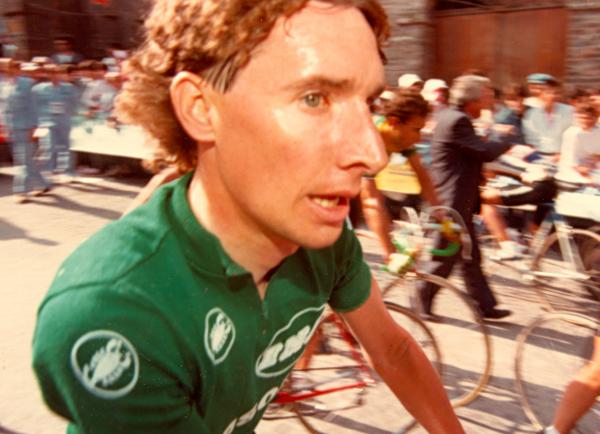
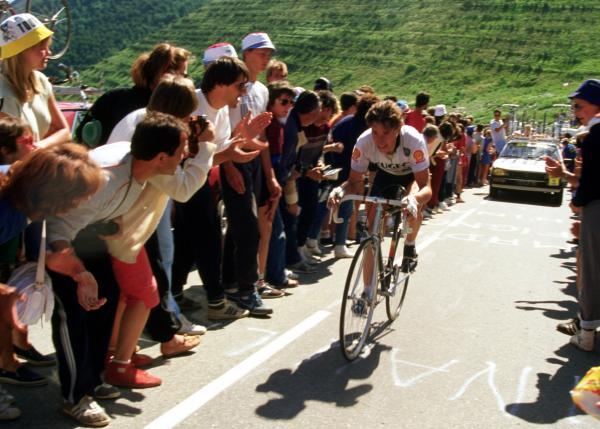
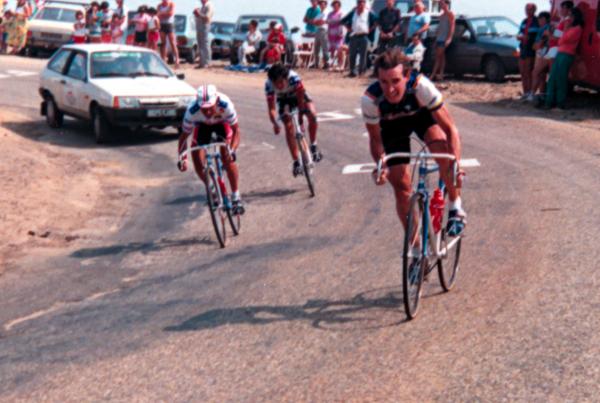
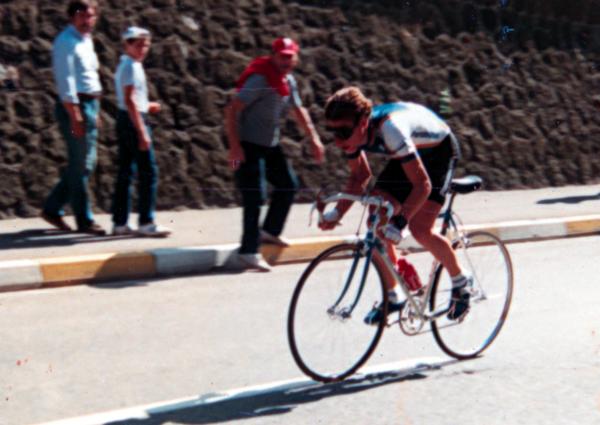
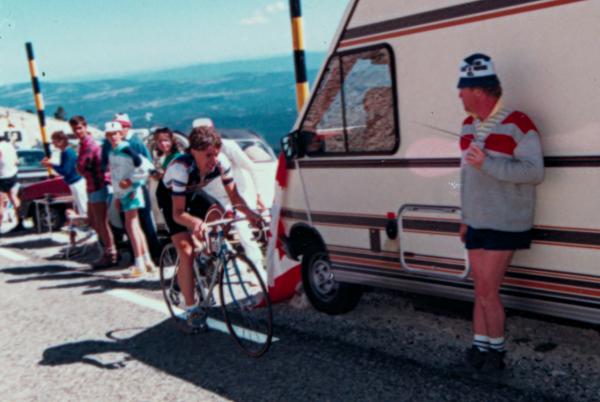
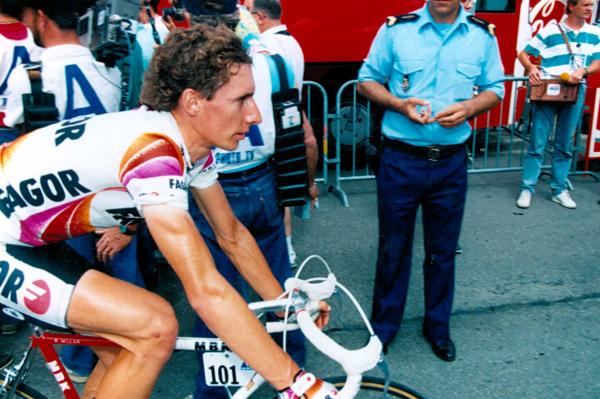
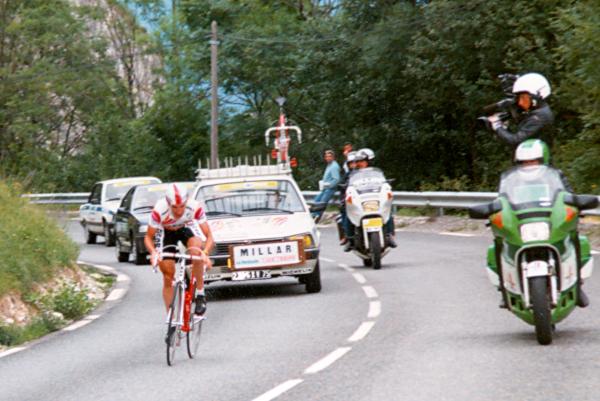
As the Tour de France prepares for the final mountain stage in the Pyrenees, former Tour rider, three-time stage winner and polka-dot jersey winner Robert Millar agreed to speak to Cyclingnews about this year's race.
The Scot has avoided the spotlight for many years but he has carefully watched this year's Tour de France and just like during his career, he is not afraid to give his opinion on key aspects of the race.
Millar won all of his Tour de France stages in the Pyrenees. He was one of the best pure climbers of his generation and always excelled in the Pyrenees.
He won a stage from Pau-Bagneres de Luchon on his Tour de France debut in 1983 and finished 14th overall. He won another stage, from Pau to Guzet-Neige in 1984, finishing fourth overall and bettering Tommy Simpson's sixth place from the sixties. He won his third stage, from Cauterets to Supertankers, in 1989, while riding for the Z team.
Millar shares his intimate knowledge of what it is like to race on the steep and often rough roads in the Pyrenees. He reveals what it is like to win and lose prestigious stages in the Tour and uses a musical metaphor to compare Bradley Wiggins' Tour performance. He also gives his opinion on the Floyd Landis-Greg Lemond-Lance Armstrong accusations, picks his winner of this year's race and discusses the Andy Schleck-Alberto Contador 'chaingate' incident.
Cyclingnews: This year is the centenary of the Pyrenees, with the Tourmalet providing a special finale to this year's race. What memories do you have of your stage victories in the Pyrenees?
Robert Millar: I have quite a few memories of the Pyrenees, from the first time through to the last time that I raced over them at the Tour. Luckily I usually performed quite well there so most of those memories are good but there's no one thing that really stands out as better than others.
Get The Leadout Newsletter
The latest race content, interviews, features, reviews and expert buying guides, direct to your inbox!
CN: In what way are the Pyrenees different to the Alps? Which did you prefer?
RM: I actually didn't especially prefer the Pyrenees to the Alps. I think I was probably at my best after 10 days of racing and given that the Tour tends to go in anti-clockwise direction around France that meant being somewhere near the Pyrenees into the second week of racing. The Pyrenean climbs also tend to start more abruptly so there is less transition into the climb from the flatter approach roads, that didn't seem to affect me as much as other riders.
The surfaces used to be rougher, maybe not so much now, but it did make the climbs stickier. By that I mean you seemed to be going slower for the same amount of effort, the Pyrenees seemed to be more about groveling uphill and I was quite good at groveling.

Robert Millar (Peugeot - Shell - Michelin) climbs L'Alpe d'Huez at the 1984 Tour de France.
CN: Which of your stage victories in the Tour de France was the most emotional for you? And why?
RM: Probably the first one I won into Bagneres de Luchon in 1983, I knew I could climb quite well but I wasn't sure that it would be good enough to win a Tour stage. I had felt good all day and when I slipped into the escape that day I knew I had a good chance of doing something special. The next year when I won again it was probably a more emotional experience, it certainly confirmed where I was as a climber and wasn't as much of a shock to be at that level. The 1989 win (in Superbagnères) definitely hurt the most though.
CN: What memories do you have of the stage to Guzet-Neige in 1988, when you were sent the wrong way and Massimo Ghirotto won?
RM: What a nightmare. I wasn't in great form and it was one of my few chances to do a decent ride at that Tour. I was so tired by the time we got to the Pyrenees and dragged myself into the escape on pure willpower that fateful day. I'd raced the climb the previous month at the Route de Sud, so I knew the climb and the finish well but for some reason the Tour used the deviation road as the finish instead of sticking to the proper road. That confused me as I'd never seen that bit of asphalt and then Bouvatier attacked a long way from the line and since he kept to the left we didn't see the final turn coming up so instead of taking the corner we both ended up in the car parking.
I don't know if the gendarme was to blame, I don't think he was, I know I would have come round Bouvatier in the sprint but then I ought to have dropped him before we got to that stage. If I hadn't been so tired I would have done that but I wasn't good enough to do that so I decided to wait for the sprint. Then it all went wrong.
CN: This year's Tour de France reaches its climax with the summit finish on the Tourmalet. Which side of the Tourmalet did you prefer to climb?
RM: Definitely the side from Luz St Sauveur, not that it is much easier than the other side through La Mongie, but I seemed to find a good rhythm on the western side and I liked that it got steeper for the last couple of kilometres to the top of the climb. The eastern side seemed rougher and more of a fight to get up. The steep section before La Mongie always hurt and put a damper on the final part of the eastern side. The finish being at the top of the western side will be more conductive to a good bit of attacking and I'd expect a hot pace for the first few kilometres up towards Bareges.
The place to attack is just after the bends before reaching the village of Bareges. It is ideal to make a first selection, as it gets slightly steeper. Then about it's the long straights towards the turns at the top to see who is looking good. The last two kilometres are very steep and will probably be decisive for the stage win. It's best to save something for this part of the climb as it's usually a headwind, as if the gradient wasn't enough to deal with.
I don't think there'll be a big gap between Contador and Schleck at the top of the Tourmalet to decide the Tour. If Schleck doesn't drop Contador before the steepest section at the top I can see the Spaniard taking a few more seconds in the kick to line.
CN: What do you think of the duel between Contador and Schleck?
RM: Andy Schleck has improved another few percent and now is up there at Contador's level, maybe not his time trialing but everywhere else he's stepped it up a level. I think Contador will just try to control what Schleck does in the mountains and then use his superior TT ability to win his third Tour.
CN: Was Contador right to attack when Andy had a mechanical?
RM: I think it was just one of those racing incidents that unfortunately meant Andy lost time and the lead. Contador seems to be getting all the blame for not waiting but at least he seemed to be thinking something wasn't quite right, Menchov and Sanchez didn't hesitate to keep racing at all. I don't think Contador wanted to be in that situation given the circumstances but he couldn't let the others ride away either.
CN: Who do you think will win the Tour?
RM: Contador because his time trialing is better than Andy Schleck .
CN: What do you think of Lance Armstrong's demise? Is it a case of one Tour too far?
RM: It does look that way but it's amazing that he's still competitive given his age and all the hype that surrounds him.
CN: What do you think of the Landis accusations and more recently the things Greg Lemond has said?
RM: Difficult question... One of those he said she said things. I don't think it's fair to anyone to blame someone or make comments on something you don't have knowledge of. The only people who know what happened in the past are those involved and while it might be the job of the media to speculate, until there's a proper investigation no-one can say what the truth is or isn't. It's probably best to let Feds sort it out if they feel they have to but it's not good for the sport to have this stuff going on.
CN: As the last Briton before Bradley Wiggins to perform well in the overall classification at the Tour de France, what do you think of his performance this year?
RM: In music terms it's the difficult second album for Bradley. He's had the hit introduction and now everyone expects more of the same. The race is on a harder route this year and he doesn't look like he has the same form as last year, so it's natural selection that has placed him where he is this year. It's not an exact science getting your Tour preparation right and I think he is learning that at this year's race.
If you analyse his climbing he doesn't seem to be able to get out the saddle and change pace when it's needed. Though remaining seated is probably more suited to his style of riding, the ability to climb out of the saddle is something which he has to work on.
Even as a natural climber, climbing long periods under pressure without sitting down is hard work but it's a vital aspect you have to work at. For example, watching Contador in this Tour, I'd say he has worked on his ability to accelerate on climbs more than on his time trialing and vice-versa for Andy Schleck.
If you are going to try to remain seated all the time you need big strength, Jan Ullrich, Tony Rominger or Miguel Indurain type power. But I don't think Bradley has that. He seems to climb with more souplesse and a low gear like Armstrong does, but Lance gets out the saddle as well so he has the option and it allows him to absorb or make accelerations. Bradley has definitely been struggling with pace changes.
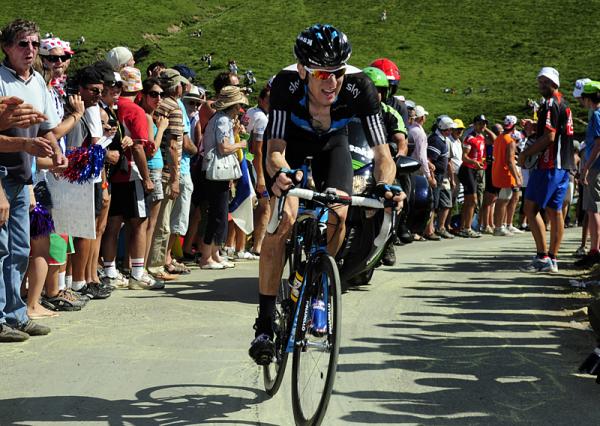
Brad Wiggins (Team Sky) has learned a lot from this year's Tour de France, according to Robert Millar.
CN: Do you think that Team Sky has made a good debut as a team or have they made mistakes?
RM: Sky had been strong at the start of the season but it's been more subdued once the stage racing has begun. Given the PR they have put out about focusing on the Tour they have to be disappointed with how things have turned out. Geraint Thomas had a great first week but other than that it's not what they would have hoped for so I suspect they'll assess what happened and maybe learn from it.
As a team debut it's been a similar story to the arrival of Cervelo: they were also strong at the Classics and struggled elsewhere. But if you don't have Contador or the Schlecks of this world then the big Tours are always going to be difficult.
I think Sky as a sponsor has brought a new level of media presentation to cycling but that's to be expected given that it's their business. Looking beyond the PR the team as group of people is maybe learning that this is the top level of cycling and all those little things that they think they've discovered and could be improved are already being done by most of the other teams.
As for mistakes, it's easy to criticise with hindsight. Riding to see off Armstrong on the Col de Ramaz wasn't a good idea as it only put more pressure on Bradley to perform. Instead of staying calm and having resources for the last climb he was in the red before he got there. They rode very well on the flatter stages to keep position when they had to but doing the same stuff in the mountain stages isn't working for them, mainly because of where Bradley is.
They needed to place riders in the breaks and chase stage wins instead of keeping to their original plan. There doesn't seem to be much adaptability but they'll learn as Bradley will.

Stephen is one of the most experienced member of the Cyclingnews team, having reported on professional cycling since 1994. He has been Head of News at Cyclingnews since 2022, before which he held the position of European editor since 2012 and previously worked for Reuters, Shift Active Media, and CyclingWeekly, among other publications.